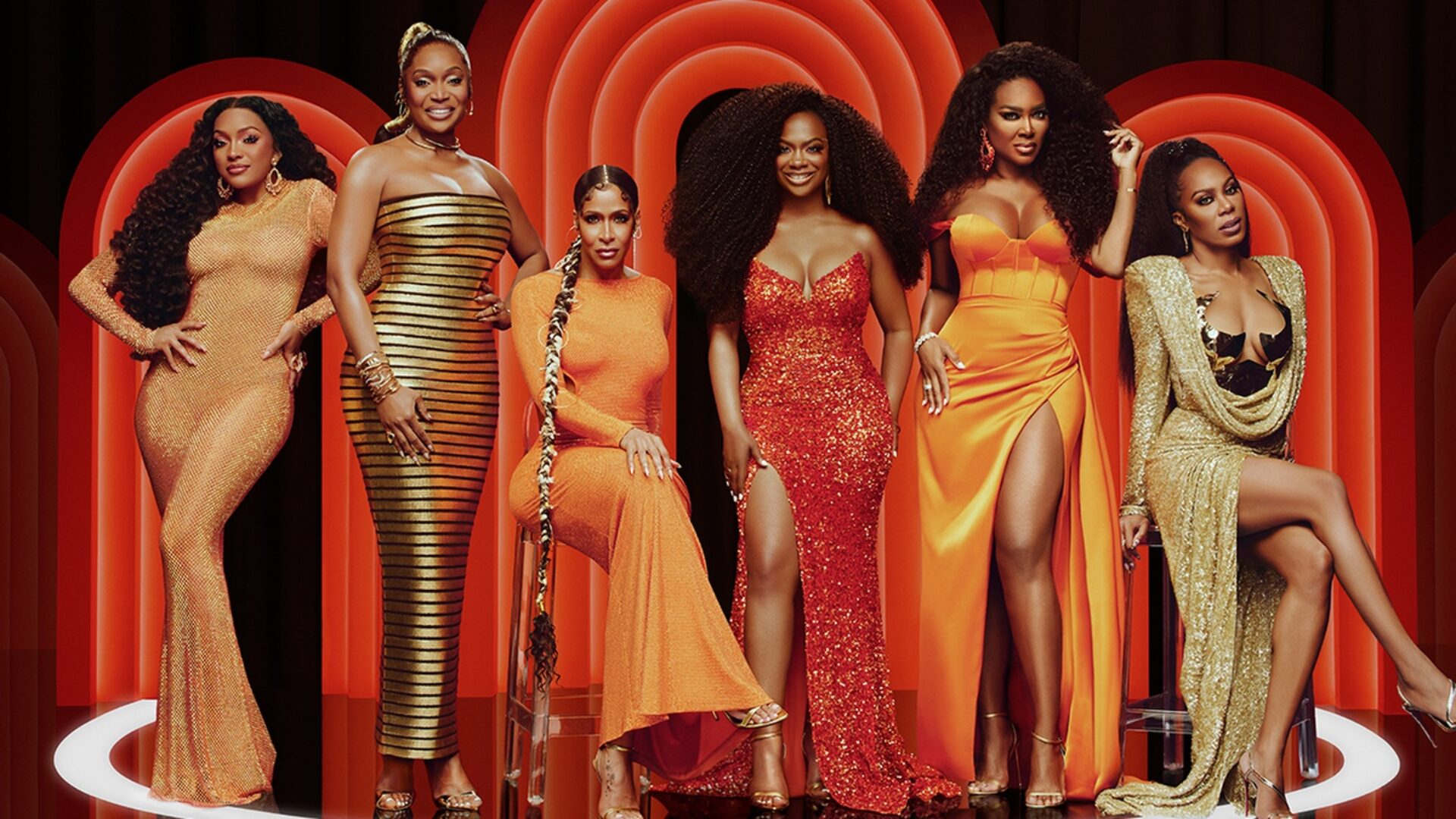
The Real Housewives universe entered many homes in the early aughts and changed the outlook on pop culture for numerous generations. When The Real Housewives of Orange County or New York came to the screen, it brought the glitz and glam to the general public. Once Black women like Nene Leakes and Karen Huger joined the notable roster of housewives personalities, they made luxury seem attainable outside of a scripted television series for women and girls who looked like them.
For many Gen Z’ers, The Real Housewives franchise came into their lives through their parents, aunts or older cousins. Christian Downing, 24, remembered passing by her mother’s room, experiencing The Real Housewives of Atlanta, and gaining an instant obsession. “It’s a staple because of the commentary,” Downing tells GU. “They said what’s on their mind, and they bring so much personality to the screen. It’s a personality you don’t see every day.”
What started as a bonding moment with her mother, Downing soon found herself immersed in Real Housewives culture through social media and the community built off of the franchise. During the course of the beloved series, platforms like X and Instagram elevated how fans consumed and interacted with the show. Before, the only way to recap a recent episode was to watch Watch What Happens Live With Andy Cohen or The Wendy Williams Show.
Now, Zillennials can virtually sit at the auntie’s table and dive into the hot topics about new Real Housewives episodes. With live tweeting and Instagram live playing a part in the constant Sunday night discussion, the episode becomes an entire 24-hour discourse session. “I know I can always go to [X] if I want to talk about Housewives,” Downing says.
Like many reality television experiences, companies want to bring their audience an in-person venture where they can get the conversation off the timeline. Through conventions like BravoCon, experiential activation allows the younger generation to find a community and build new relationships through the Real Housewives franchise.
As if the weekly drama and vicious reads are not enough, what truly integrates Gen Z in the new Housewives audience is the meme culture that’s cemented in the show. Some classic one-liners and reactions live evergreen on the timeline, showcasing how the series lives on past the Sunday night airtime. Whether you are a new or old fan of the Housewives saga, you probably have at least one meme or video on your phone to spice up the group chat.
Besides Zillennials being experts in whipping out a Real Housewives meme for the timeline, it doesn’t steer them away from the more complex conversations after each episode. “Since introducing these storylines, they are becoming things we talk about at the kitchen table,” says Cydney Knotts, Digital media consultant. “Before, when there wasn’t social media, we would see some of the crazy things being done, and it wouldn’t be a conversation piece, but now we’re in a mind space to have real discourse.”
It’s no secret that the image of The Real Housewives has seen a rebrand, and viewers are not holding back at the new direction the shows are taking. From the scandals behind the scenes with The Real Housewives of Atlanta to the colorism conversation occurring on Real Housewives Of Potomac, fans are seeing a shift in the storytelling, especially for the new viewers who joined the fandom through streaming. “Nostalgia is a big thing that Gen Z holds onto because our world is shifting rapidly, so rewatching and re-binging shows is grounding for us,” Knotts says. “As a generation that loves to break the rules, we’re also a collective that honors tradition deeply, specifically regarding media.”
Due to nostalgia, there’s an influx of Zillennials being critical of the new state of the Real Housewives franchise. People like Knotts or Downing started the series with their families at a young age, so there’s a natural protection on the shows. Seeing such powerful older Black women break the glass ceiling in the reality television space adds a different intergenerational perspective. “Gen Z is an active generation, and they love to find conversation starters to bring bigger issues to light,” says Kendrick Tucker, Millennial host of the Reality & Comics Too podcast. The next generation sees this franchise as more than a group of women who are memes and love to read each other. They have become key figures in pop culture that influence the new class of reality television connoisseurs.
Not only has the show gained popularity through storylines, but the multiple spin-offs and reviewers from the franchise help bridge the gap and build community. Figures like Carlos King and fellow Atlanta housewife Kandi Burruss are capitalizing on the social media experience and helping push the conversations further on their platforms. Zillennials are already at the forefront of online discourse, so watching public figures allows for even more viewership as younger fans want to participate in the conversation. “It’s so funny that [Housewives] continues to level up in pop culture and really spans through generations,” Tucker tells GU.
Though many Zillennials are on the wave of reality dating shows or Bad Girls Club adjacent content, the universe of the housewives has stretched to a younger audience through the influence of the older viewers in their lives. What started as a show many of us would sneak and watch when our parents weren’t paying attention is now in our repertoire of content we relate to or don’t relate to in our everyday lives.
About the Author: Kenyatta Victoria is the lead writer for Essence GU, working on all things pop culture, politics, entertainment and business. Throughout her time at GU, she’s garnered devoted readers and specializes in the Zillennial point of view.